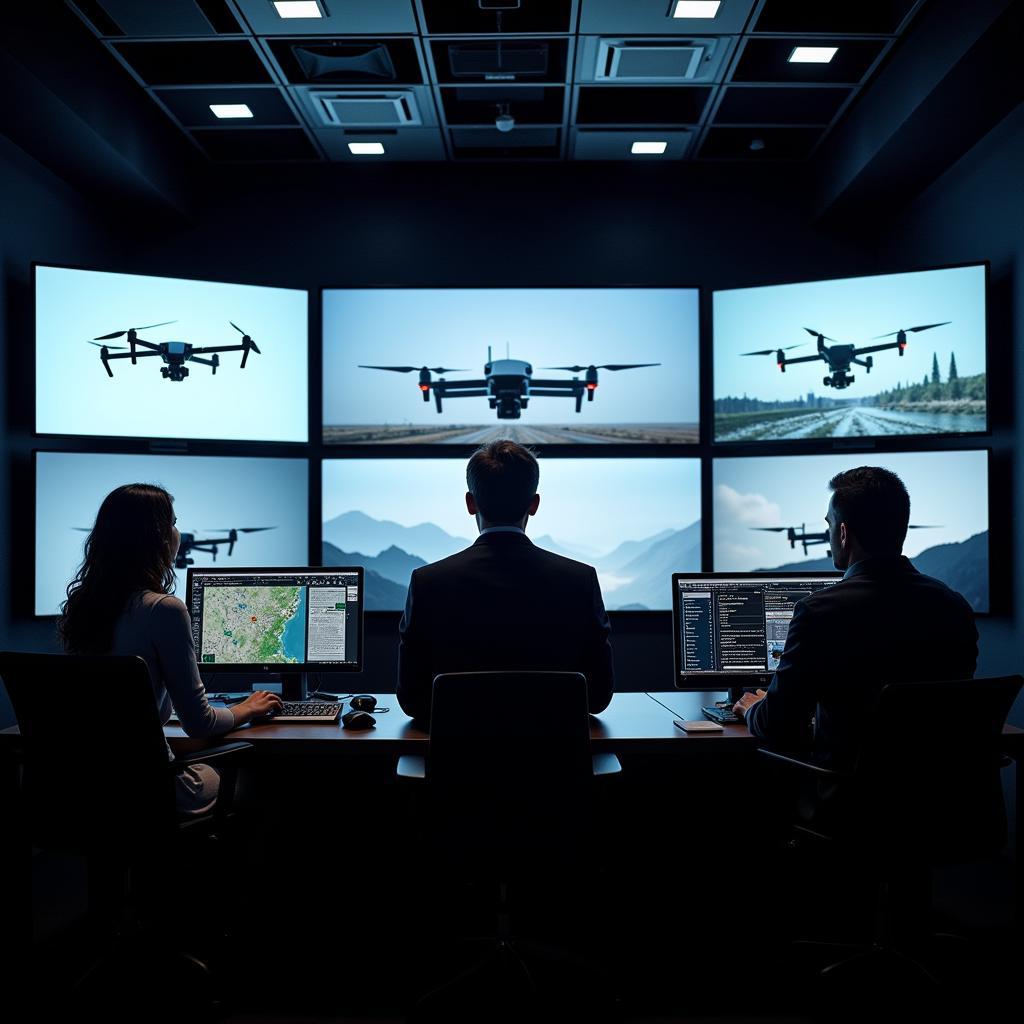The topic of drone regulation by governments has become increasingly relevant in IELTS Writing Task 2 examinations. Based on analysis of past IELTS exams and current global trends, questions about drone regulation and security appear approximately once every 4-6 months. This frequency suggests its continued importance as a test topic, particularly given the growing use of drones in various sectors.
Similar to Should governments regulate the use of AI in warfare?, this topic touches on crucial aspects of modern technology governance. Let’s examine a recent IELTS question and analyze sample responses across different band scores.

Question Analysis
Some people believe that governments should strictly regulate the use of drones for security purposes, while others think drone operators should have more freedom. Discuss both views and give your own opinion.
This question requires:
- Discussion of both perspectives on drone regulation
- Clear personal stance
- Relevant examples and supporting arguments
- Balanced analysis of security concerns and operational freedom
Band 8 Sample Essay
When exploring ethical considerations of drone technology, the debate between strict government control and operational freedom becomes particularly significant. While both approaches have their merits, I believe a balanced regulatory framework is essential.
Proponents of strict regulation argue that unrestricted drone usage poses significant security risks. Drones can potentially be used for surveillance, smuggling, or even terrorist activities. For instance, several airports worldwide have experienced disruptions due to unauthorized drone operations, highlighting the need for comprehensive control measures. Moreover, privacy concerns arise when drones equipped with cameras operate near residential areas or sensitive locations.
Conversely, those favoring more freedom for drone operators emphasize the technology’s benefits. Commercial applications, such as delivery services, agricultural monitoring, and emergency response, require flexible operation. Excessive regulation might stifle innovation and prevent businesses from fully utilizing drone capabilities. For example, during natural disasters, quick drone deployment can save lives, but bureaucratic hurdles could delay such critical operations.
In my view, while complete freedom is impractical, overly restrictive regulations could be counterproductive. The optimal approach would be implementing smart regulations that balance security requirements with operational flexibility. This could include mandatory registration, operator certification, and designated flight zones, while still allowing legitimate commercial and recreational use.
(290 words)
Band 6.5 Sample Essay
Drone technology: applications and regulations is an important topic today. Some people want strict rules for drones, but others want more freedom to use them.
People who support strict rules think drones are dangerous. They worry about bad people using drones to cause problems. For example, drones can spy on people or carry dangerous things. Also, drones might crash into airplanes or buildings. Many countries have had problems with drones flying near airports.
On the other hand, some people think drone users need more freedom. They say drones help in many ways, like delivering packages and taking pictures. If there are too many rules, businesses cannot use drones effectively. Also, drone hobbyists enjoy flying drones for fun and taking photos.
I think we need some rules but not too many. The government should make sure drones are safe but also let people use them for good things. Maybe they can make different rules for different types of drones and users. This way, everyone can be happy and safe.
(146 words)
Analysis of Band Scores
Band 8 Essay Features:
- Sophisticated vocabulary and complex structures
- Clear organization and cohesive devices
- Well-developed arguments with specific examples
- Balanced discussion with clear personal stance
- Appropriate academic style
Band 6.5 Essay Features:
- Simple but clear arguments
- Basic vocabulary and grammar structures
- Limited development of ideas
- Some coherence but less sophisticated
- Occasional errors in expression
Key Vocabulary
- regulatory framework (n) /ˈreɡjʊləˌtɔri ˈfreɪmwɜrk/ – system of regulations
- surveillance (n) /sərˈveɪləns/ – monitoring of behavior
- bureaucratic hurdles (n) /ˌbjʊrəˈkrætɪk ˈhɜrdəlz/ – administrative obstacles
- operational flexibility (n) /ˌɒpəˈreɪʃənəl ˌfleksəˈbɪləti/ – freedom in operations
- counterproductive (adj) /ˌkaʊntərprəˈdʌktɪv/ – having opposite effect to intended
For further insights into this topic, you might want to explore is it ethical to use drones for military purposes.
Future practice questions might include:
- Should private citizens be allowed to own drones?
- How can governments balance privacy rights with drone surveillance?
- What role should drones play in law enforcement?
Share your practice essays in the comments section for feedback and discussion!